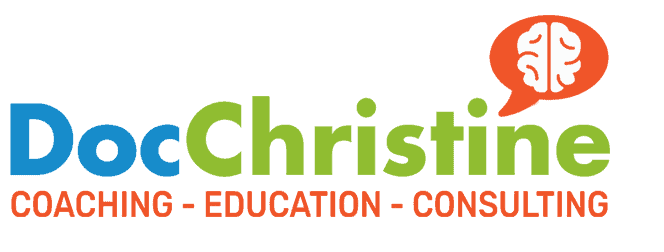what is the best natural
treatment
for depression and anxiety
Depression and Anxiety does not just feel awful to anyone who has ever experienced the emotions associated with it, but - if left untreated and persisting for a longer time (more than 2 weeks) they can lead to severe functional impairment of enjoyment of life and functions of everyday living, like working, grooming, even getting out of bed, getting dressed or having a shower can feel like an impossible task.
Historically we have called people going through depression having a "dark night of the soul" and in severe cases, people hundreds or thousands of years ago have been cared for by their family, have been left out by the wayside to fend by themselves (often leading to early death) or in the mittle ages, housed in inhumane institutions "asylums".
These days, we are fortunate to have many effective options to treat depression and anxiety and lessen or even eliminate the painful symptoms going hand in hand with them.
But many people feel not satisfied with the conventional treatment options and wonder: "What is the best natural treatment for depression?"
In this article, I am summarizing the different treatment options for depression and anxiety, focusing on natural treatments for depression and anxiety, and
This article gives an overview of different treatment options for depression and anxiety, focusing on natural treatments for depression and anxiety. What are the conventional options? What are natural, naturopathic, alternative, complimentary, functional, integrative treatment options?
Then I will detail what I found in my own experience of over 40 years in healthcare - and as a mental health "patient" and "thriver" myself, to be the BEST treatment for depression and anxiety.

click on table of contents to expand
Conventional Treatment Options for Depression and Anxiety

Most people who feel depressed and anxious see their family doctor first. And this is a good thing, as physical illnesses like thyroid disease, infections, anemia and others can cause symptoms that can easily be confused with depression and/or anxiety as well as can have many other root causes.
But often, after a simple blood test to rule out very common other causes, doctors are clueless to go further.
They prescribe antidepressants, often still adhering to the by now disproven hypothesis that low serotonin levels (a neurotransmitter in the brain) is the cause of depression.
All modern antidepressants are based on this theory, that has never been proven. And latest scientific research shows that antidepressant use does not improve your quality of life.
Sometimes, patients are referred to a psychiatrist, which often means even more medications and many patients feel more and more that they are in a "zombie" like state of altered feeling.
The traditional treatment for Depression and Anxiety also includes often psychotherapy. There are different variants of psychotherapy, the most common being CBT (Cognitive Behavioral Therapy) or Interpersonal Therapy.
My favorite is TEAM Therapy, an improvement of CBT initiated by Dr. David Burns, who wrote the excellent books: "Feeling Good" and "Feeling Great". You can also call this a natural treatment, since it otherwise fits in that category as well.
More and more, lifestyle changes like adding exercise and healthy eating as well as stress management are recommended by conventional practitioners.
Alternative or "Natural" Treatment Options for Mental Health Disorders
What is Natural Treatment? And what it isn't
This is more difficult to define than it seems at first glance. Generally speaking, it means doing something that is not - or not yet - accepted by conventional medicine and is usually not covered by state or country healthcare systems.
It is important to note that many cultures outside of North America and many cultural systems historically have over thousands of years used natural treatments with sometimes great success.
There are many, often quite famous practitioners who have worked in a field that nowadays would be considered "natural", "complimentary" or "alternative".
You may have noticed this: The fact that we do not have a clear and easy definition means that there is lots outside of conventional medicine, that the conventional treatments, although certainly sometimes lifesaving, are not always as helpful for the individual as their practitioners would like to believe, and that many people throughout history have searched for better ways to help themselves and their suffering fellow humans.
Here are a few definitions of "Natural Medicine" that I found online:
Natural medicine addresses health conditions by treating the patient holistically to improve their health rather than solely treating the actual disease, condition, or diagnosis.
Natural medicine works by supporting the body’s inherent healing mechanisms.
Natural medicine means food, food extracts, vitamins, minerals, essential oils, enzymes, digestive aids, nutraceuticals, glandular substances, plant substances, herbal preparations, homeopathic preparations, oligotherapeutic preparations, gemmotherapeutic preparations, and natural antibiotics.
Natural medicine went from being in the domain of the eccentric and the offbeat to having status as a legitimate and interesting alternative form of health care practice.
What natural treatment isn't:
Many people assume that "natural" means also "harmless". This is not the case. Although natural treatments for depression and anxiety generally have much less unwanted effects, they can have serious side effects and need to be treated as such and researched properly by each individual, just as you should do with any conventional medicine options.

There are also related terms to "natural treatment", "natural medicine" or "natural remedies" out there, that I want to try to define better here.
Complimentary Medicine or Treatments
Complimentary treatment means usually using other, more "natural" options along with standard medical treatment, but it s not considered by itself to be standard treatment. One example is using acupuncture to help lessen some side effects of cancer treatment. Less research has been done for most types of complementary medicine.
Alternative Medicine or Treatments
Alternative medicine means usually using other options of treatment instead of standard medical treatment. One example would be using a special diet to treat cancer instead of cancer drugs that are prescribed by an oncologist. Less research has been done for most types of alternative medicine.
Integrative Medicine
What does integrative medicine mean? The Cleveland clinic defines integrative medicine as an approach to wellness that combines conventional (traditional Western) medicine, (which includes drugs, surgery and lifestyle changes.) with complementary medicine therapies that are not part of traditional Western medicine. This may include chiropractic therapy, yoga, meditation and more.
Functional Medicine
Functional Medicine means a systems biology–based approach that focuses on identifying and addressing the root cause of disease. Each symptom or differential diagnosis may be one of many contributing to an individual’s illness.
Wikipedia classifies it as a form of alternative medicine that encompasses a number of unproven and disproven methods and treatments. Its proponents claim that it focuses on the "root causes" of diseases based on interactions between the environment and the gastrointestinal, endocrine, and immune systems to develop "individualized treatment plans
List of Therapies that Fall into the Category of "Natural Treatments"
(this list is not complete)
- Acupressure
- Acupuncture
- Adrenal fatigue
- Alternative medicine
- Animal-assisted Therapy
- Anthroposophic medicine
- Apitherapy
- Aromatherapy
- Auriculotherapy
- Ayurveda
- Bach flower remedies
- Balneotherapy
- Barefoot running
- Bates method
- Bodywork (alternative medicine)
- Breathwork
- Canine cancer detection
- Chelation therapy
- Chinese herbology
- Chiropractic
- Chromotherapy
- Colon Cleansing
- Craniosacral therapy
- Crystal healing
- Cupping therapy
- Curandero
- Detoxification (alternative medicine)
- Dianetics
- Dosha
- Ear candling
- Emotional Freedom Techniques
- Facilitated communication
- Faith healing
- Fasting
- Feldenkrais Method
- Grape therapy
- Grounding
- Gua sha
- Halotherapy
- Havening Techniques®
- Herbalism
- Herbal medicine
- Hilot
- Homeopathy
- Hyperbaric Oxygen Therapy
- Hydrotherapy
- Hypnotherapy
- Infrared sauna
- Iridology
- Kampo
- Leaky gut syndrome
- Magnet therapy
- Maharishi Vedic Approach to Health
- Manual therapy
- Medical intuitive
- Megavitamin therapy
- Mind–body interventions
- Moxibustion
- Mud bathing
- Muti
- Myofascial release
- Naturism
- Nature therapy
- NLP (Neuro-Linguistic Programming)
- Oil pulling
- Orgone
- Orthomolecular medicine
- Osteopathy
- Ozone therapy
- Parapsychology
- Phrenology
- Psychic surgery
- Pulse diagnosis
- Quackery
- Rasayana
- Reflexology
- Reiki
- Rolfing
- San Jiao
- Shamanism
- Shiatsu
- Somatic experiencing
- Sri Lankan traditional medicine
- Sungazing
- Tai Chi for Health
- Thai massage
- Therapeutic touch
- Traditional Chinese medicine
- Traditional Korean medicine
- Traditional Mongolian medicine
- Traditional medicine
- Tui na
- Unani medicine
- Urine therapy
- Urophagia
- Vision therapy
- Vitalism
- Yoga as therapy

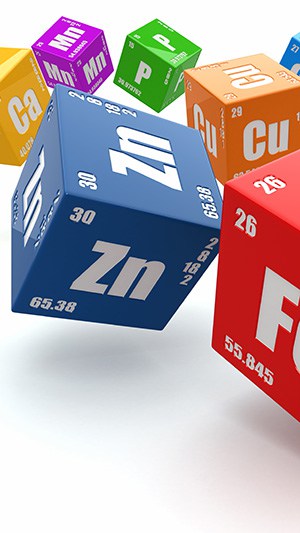
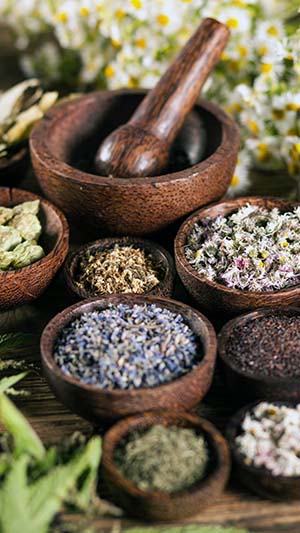
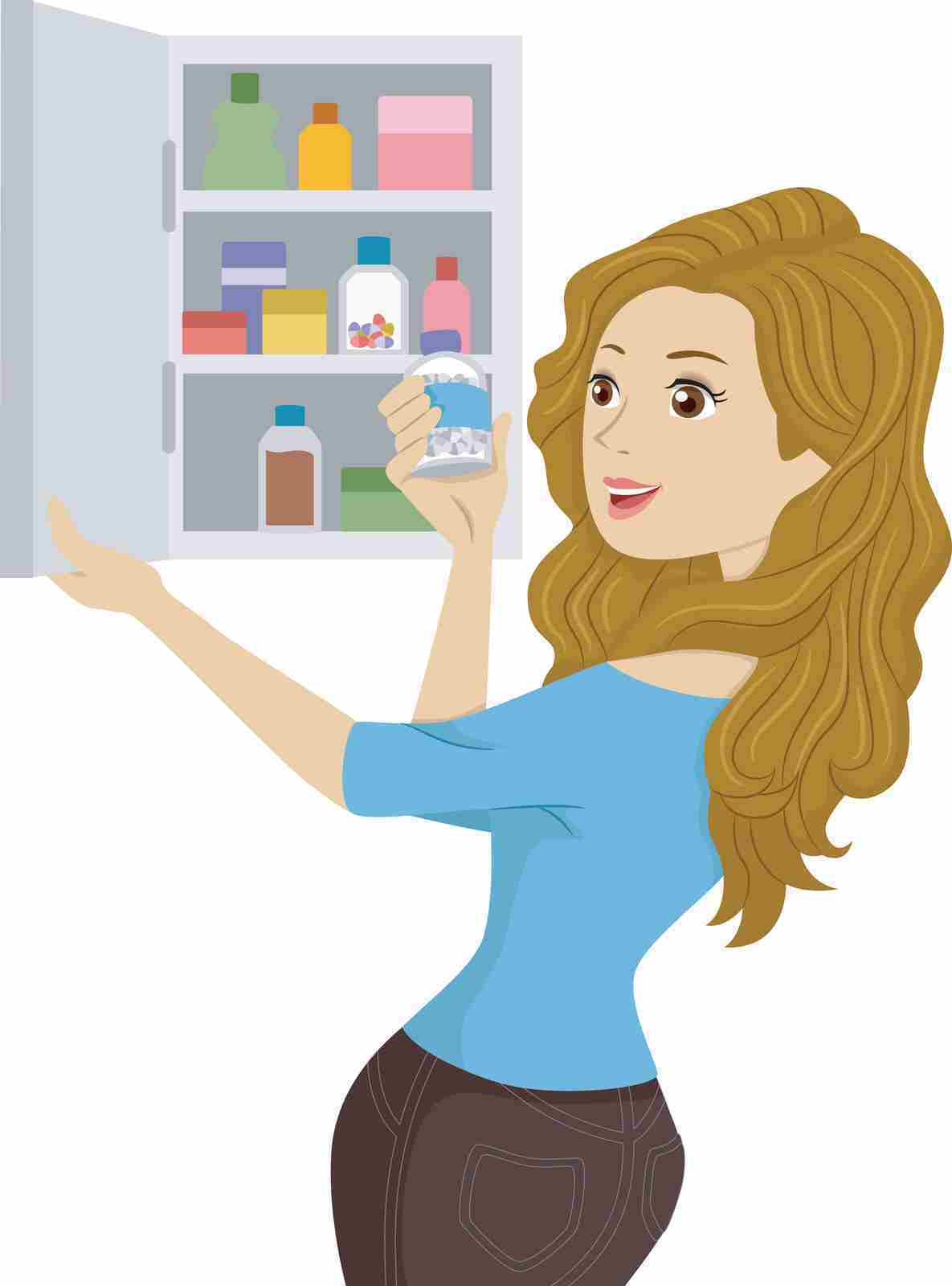
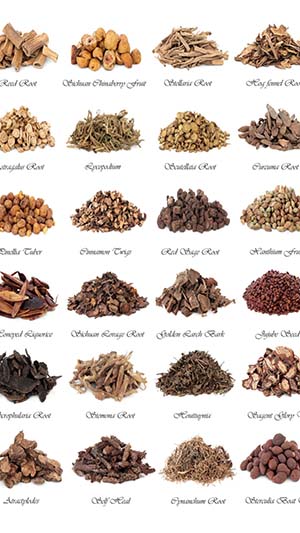
Natural Treatments are often also called natural remedies. But - are there any natural remedies for depression?
Research shows that there are many. Here is a breakdown of the most common types:
1. Functional Psychiatry
This is a very new field of Psychiatry, also called Integrative Psychiatry. Dr. James Greenblatt MD, a pioneer in the field, defines it on his website "Psychiatry Redefined" as follows:
"While scientific research has brought our understanding as to the complex interplay of biologic, genetic, and environmental factors that together create the dynamic continuum of human thought and behavior to an unprecedented level, psychiatry’s application of this knowledge lags far behind that of other medical disciplines, and the treatment of mental illness remains a substantial challenge. Over the last few decades, the number of patients with psychiatric disorders and neurologic disease has skyrocketed, causing a surge of medical burden that psychiatry as a field seems increasingly ill-equipped to address.
The broadening gap between incidence and rates of treatment success mirrors that which separates scientific discovery and clinical practice. Mental illnesses are being treated according to etiologic and therapeutic models that have changed little over the last half-century. Patients with unique symptomatic presentations are being tucked into diagnostic categories derived from consensus and statistical average, and offered treatment geared primarily towards symptom management that does not account for biologic individuality.
Over-reliance upon pharmaceutical interventions is rampant, driven by a multitude of factors including convenience and assumption – assumption that an intervention effective for one patient will most likely be effective for another. Epidemiologic data demonstrates in no uncertain terms that this model is not adequate. While medical disciplines proactively pursue methodologic refinement through ongoing scientific discovery, psychiatry seems held to a standstill by outdated approaches and incomplete therapeutic models."
I see great hope in this approach on combining the conventional medical model with complimentary approaches, whatever you want to call them.
Other pioneers in this field are
Dr. Daniel Amen MD ("Change Your Brain, Change Your Life")
Peter R. Breggin, MD ("Psychiatric Drug Withdrawal")
Kelly Brogan MD ("A Mind of Your Own")
and probably others.
2. Psychotherapy (different variations) - especially TEAM Therapy
There are many variations of psychotherapy. The most common and best researched treatment for depression is CBT (Cognitive Behavioral Therapy) .
My favorite is TEAM-CBT Therapy, an improvement of CBT initiated by Dr. David Burns MD, who wrote the excellent books: "Feeling Good" and "Feeling Great".
Other psychotherapy forms that can help depression and anxiety are interpersonal therapy, exposure therapy, schema therapy, psychodynamic therapy, role play, and many more. Therapy can be individual, in groups, for families and for couples.
Psychotherapy can be called a natural treatment, since it otherwise fits in that category as well.
3. Naturopathic Medicine Treatment
Naturopathy, or naturopathic medicine, according to Wikipedia is a form of alternative medicine. (As we saw above, that does not have to be the case, as often it is use in addition to conventional medicine)
According to WebMD, Naturopathic medicine is a system that uses natural remedies to help the body heal itself. It embraces many therapies, including herbs, massage, acupuncture, exercise, and nutritional counseling.
Naturopathy was brought to the United States from Germany in the 1800s, but some of its treatments are centuries old. Today, it combines traditional treatments with some aspects of modern science.
The goal of naturopathic medicine is to treat the whole person -- that means mind, body, and spirit. It also aims to heal the root causes of an illness -- not just stop the symptoms.
A naturopathic doctor may spend 1 to 2 hours examining you. They’ll ask questions about your health history, stress levels, and lifestyle habits. They may order lab tests.
Afterwards, they will typically discuss your personal health plan. Naturopathic medicine focuses on education and prevention, so your doctor may give you diet, exercise, or stress management tips. They might use complementary medicine -- like homeopathy, herbal medicine, and acupuncture -- in addition to naturopathic treatments. They may also use touch, such as massage and pressure, to create balance in your body.
You can find people who support naturopathic medicine in hospitals, clinics, community centers, and private offices. They fall into three groups, and they all have different educations and backgrounds:
- Naturopathic physicians: These are also called naturopathic doctors (ND) or doctors of naturopathic medicine (NMD). They usually attend an accredited four-year, graduate-level school. There they study basic sciences similar to those studied in conventional medical school. They also study nutrition, psychology, and complementary therapies such as herbal medicine and homeopathy. Some states and territories require naturopathic doctors to become licensed. That means they have to pass an exam to practice and take continuing education classes.
- Traditional naturopaths: These practitioners don’t attend an accredited naturopathic medical school or receive a license. Their education varies widely.
- Healthcare providers: Some medical doctors, dentists, doctors of osteopathy, chiropractors, and nurses have training in naturopathic medicine. Many are either NDs or they studied naturopathy.
- Health Coaches who have additional training in natural medicine. some may be retired ND's or MD's with considerable experience in their field.
4. Coaching (Health/Life/Specialized)

Coaching generally refers to a method of training, counselling or instructing an individual or a group how to develop skills to enhance their productivity or overcome a performance problem. We all have heard of sports coaches. But coaching oesn't end there.
The primary goal of a life or health coach is to help a client look at where they are, where they want to be, and how to get there.
A life coach can help you with more practical, well-defined aspects of life.
A health coach helps you with a wellness-related aspect of life, e.g. nutrition, fitness, or similar health issues.
A Brain Health Coach or a Mental Health Coach is a coach that has additional, specialized training in how to help the brain and mind with coaching techniques and arts. One of the best Brain Health Coaching Programs has been established by Dr. Daniel Amen MD.
5. Spiritual Counseling
Spiritual counselling is a mode of healing that looks at an individual’s beliefs and values, and in which there is typically a longing for meaning larger than the individual self. Where traditional counselling might concentrate on tending to an individual’s mind, spiritual counselling hones in on the soul, integrating the individual’s macro worldview into the therapy itself.
Spiritual counselling does not require a ‘religious’ belief system, although it is typically grounded in the perennial wisdom that comes from many spiritual traditions. For those who believe in a higher power or guide, spiritual therapy can help deepen their connection with this power, or the connection may act as an aid to their personal healing process.

Spirituality has increased in recent years, as the adherence to traditional religions has decreased. Spirituality is typically defined as the search for transcendent meaning or as a belief in a greater existence outside of humankind.
It can be linked to religion, but the practice of spirituality is generally considered to go beyond religion and connect individuals with something larger, such as the universe itself.
Spiritual Counseling takes into account cognitive and philosophic areas of thought as well as aspects of emotions and behavior.
Some might describe spirituality as the attempt to understand one's nature or the meaning of one's existence, but spirituality is also linked to internal awareness and happiness.
Many cultures and belief systems hold that a spirit is the essence of one's existence. In these cases, spirituality may also describe a person’s connection to others and to themselves.
Though some may describe themselves as spiritual without adhering to the principles of any religion or even having any religious thought, for others, religion is the manifestation of their spirituality.
This manifestation may involve the performance of rituals—in one tradition or in some combination of traditions—with varying degrees of commitment and involvement in that faith.
Spirituality may also describe the attention people pay to their own well-being and that of others. For many, the practice of dance, yoga, meditation, or volunteer work, among others, are outlets in which to express spirituality.
6. Energy Medicine, Body Energy Therapies or Energy Healing
The term energy medicine was coined in the 1980s to describe a form of complementary and alternative medicine (CAM). It’s also known as:
- energy healing
- subtle energy healing
- mind-body medicine
- vibrational medicine
It’s based on the belief that the body is permeated by an energy field that can affect our health and well-being, also called subtle energy, vibrational energy, or simply life force.
Body Energy Therapies involve some form of touch as well as energetic techniques. Some examples would include
- Havening Techniques®,
- EMDR (Eye Movement Desensitization and Reprocessing), ,
- Bio-Feedback,
- EFT (Emotional Freedom Techniques, "Tapping")
Energy Healing does not necessarily involve touch, though, as the body is said to have an energy field, called aura,
One of the best known forms is Reiki, a Japanese form of energy healing. Reiki practitioners use a technique called palm healing or hands-on healing through which a "universal energy" is said to be transferred through the palms of the practitioner to the patient in order to encourage emotional or physical healing.
There are many other forms of energy healing that use similar techniques, some can be used at a distance.
Do-it-Yourself-Options

Online Programs and Courses
There are many programs that can be used to help depression and/or anxiety and related disorders.
I will review the best of them soon on this site.
Books
There are millions of self-help books in the mental health field available. I will review the best ones on this site soon.
Nutrition
The use of food and the importance of healthy eating for better general health has been established and acknowledged, even by mainstream medicine for some time.
It is slowly also recognized that healthy eating is contributing to good mental health, too, and can assist rapid recovery from depression.
The debate is more over what constitutes healthy eating.
The guidelines of the US department for Agriculture can be found here. A List of Diet Associations in the US, Canada, United Kingdom and Australia can be found here.
Here is what the WHO (World Health Organization) considers a healthy diet. Canadians are supposed to follow their own food guide.
The influence on food on mood and mental health is also being more and more studied. You can find a good article about nutritional psychiatry here.
These official guidelines are widely accepted in conventional medicine. But many consumers like you and me have doubts, since their funding often comes from large corporate organizations that produce packaged food or even pharmaceuticals.
A good synopsis of what to eat for vibrant health and better energy is found in my little book, that you can purchase on Amazon.
It can help you when you may or may not know what you should eat - but what if the ideal food choice is not affordable or not available? This book clearly spells out: what food is best, what is acceptable and what should better be avoided - and why.
I am currently writing a second book on foods and nutrition, "Foods that Help You to Sparkle - How to Eat for Better Mental Health, Brain Health and Vibrant Energy"
I am currently pre-releasing it part by part to a beta-group of readers. Click Here to join our beta-group: (free until the book is published)
Nutritional Supplements
There is increasing evindence that nutrition alone is not enough to help someone suffering with mental health issues.
There has been much research done on the benefits of nutritional supplements for mental health in recent years, and certain supplements, like fish oil, probiotics, Magnesium, Vitamin D, B-Vitamins, and others are more and more recognized as important addition to the healing plan - I call it, as part of the "nutrition orchestra".
Developments in agriculture and food processing in the last 100-150 years have led to a depletion of the soil as well of nutrients and micronutrients in fruits, vegetables and other foods we eat on a daily basis. More of that is explained in the book mentioned above.
What are nutritional / food / supplements?
Generally, they fall into these categories:
- Vitamins
- Minerals
- Fats
- Amino Acids (Parts of Proteins)
- Enzymes
- Herbs and Phytochemicals (Plant chemicals)
- Spices
- Glandular Preparations
- Essential Oils
- Others
Here is a good article on how to choose the best supplements for mental health.
On my sister website: https://SupplementsforMentalHealth.com, I regularly talk about supplements for depression and also review good products that I personally recommend or actually take.
So What Is The Best Natural Treatment for Depression and Anxiety
By now, you may have guessed it:
No single strategy will work for everyone. The treatment for your mental health condition needs to be just as individual as you are.
In the experience of most practitioners (including my own), you will have the best chances to fully recover from depression and anxiety if you follow the 7-step strategy and process outlined here
A combination of all methods above, customized and tailored to your individual needs, either with the help of a professional or as a DIY project, will lead to eventual recovery.
How long will it take to get well?
Here also, the best answer is: It depends. It truly depends on your genes, envionment, strategy and actions. Most often, it will take years to achieve full recovery, especially if you do not get the best natural treatment for depression and anxiety possible at the right time, whether with or without conventional treatments added.
Where do I Go From Here?
That is a very good question. I recommend first doing some research of your own. the links in this article as well as other articles on this website can help.
You can go from there to assemble your own strategy to recover from your issues or seek professional help from one of the practitioners in an area that appeals to you. For help with gaining clarity, this Life Strategy Session can help.
Always Note: If you suffer from any medical or health condition, take medication, supplements or use other drugs, ask your doctor, pharmacist or other healthcare practitioner for individual advice before changing your diet, lifestyle or adding any supplements.
That said, you can absolutely achieve complete recovery from depression and anxiety with a good assessment, strategy and even better follow-through. It will take time, but many have done it before you, me included.
Don't give up and keep on seeking for your best solution. It is out there!
